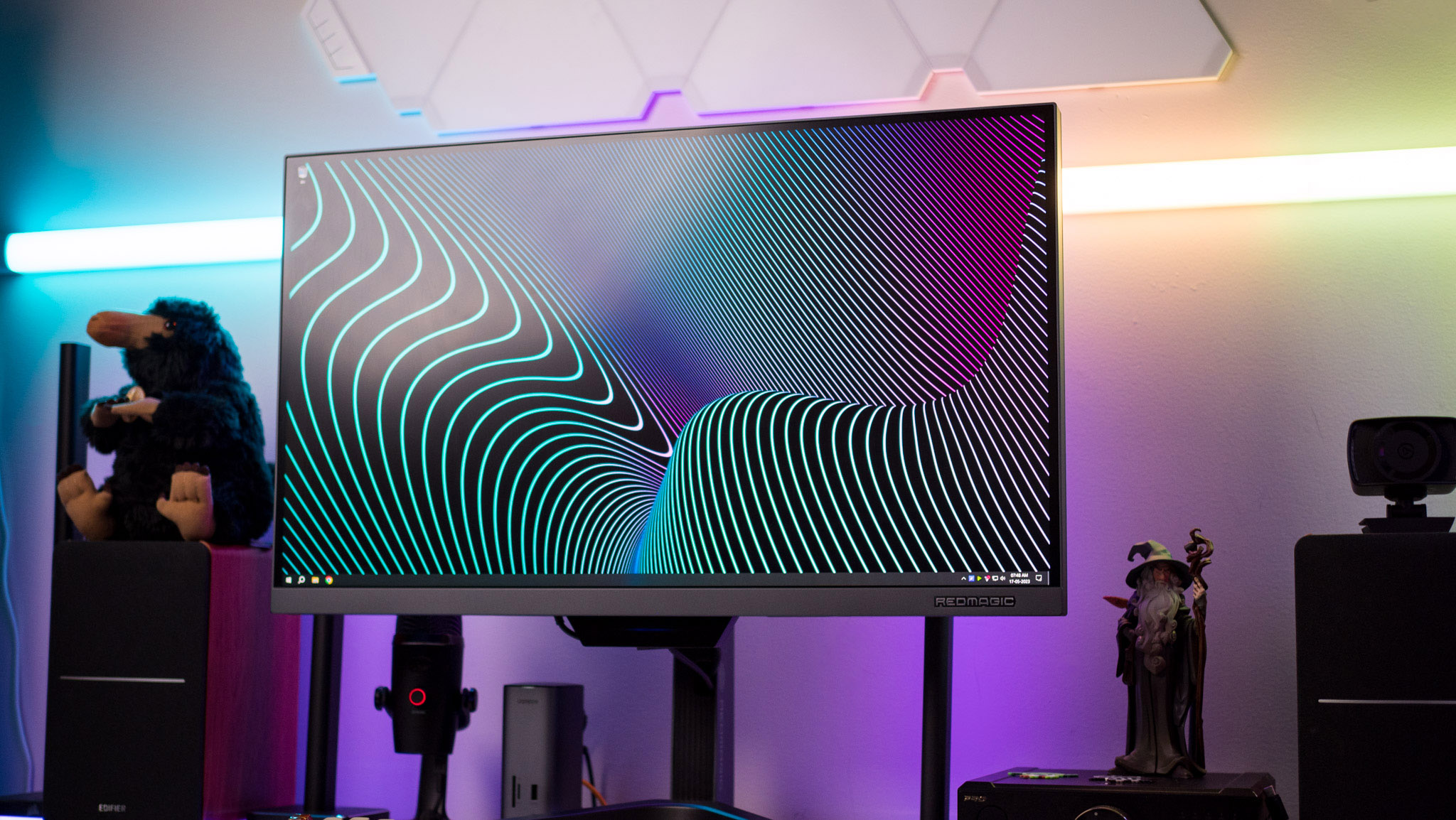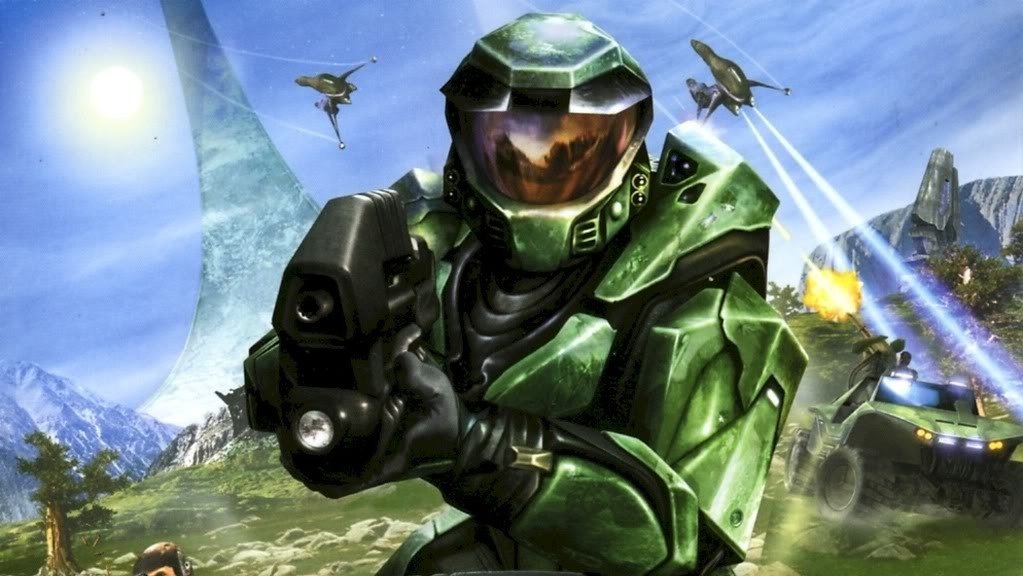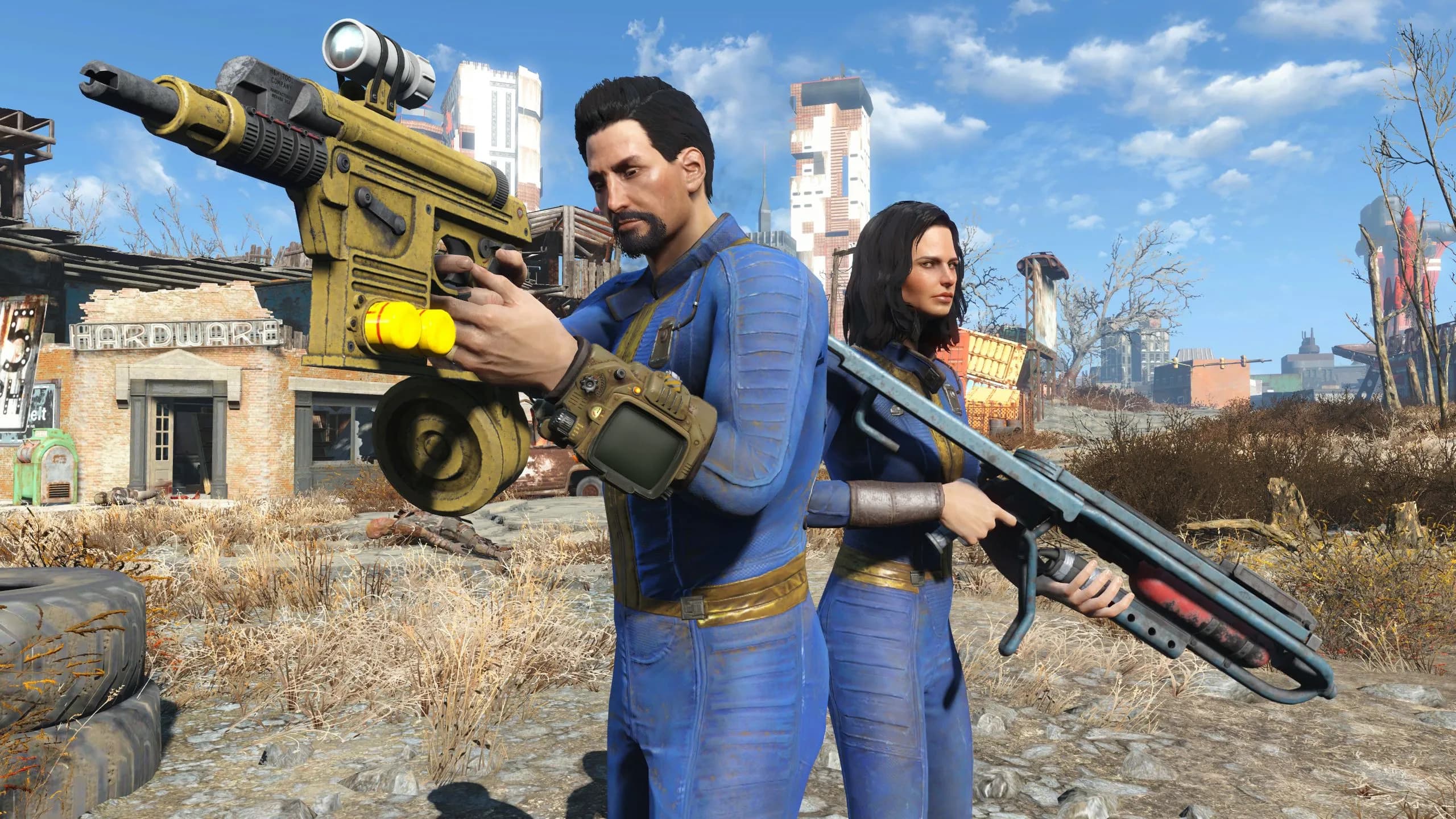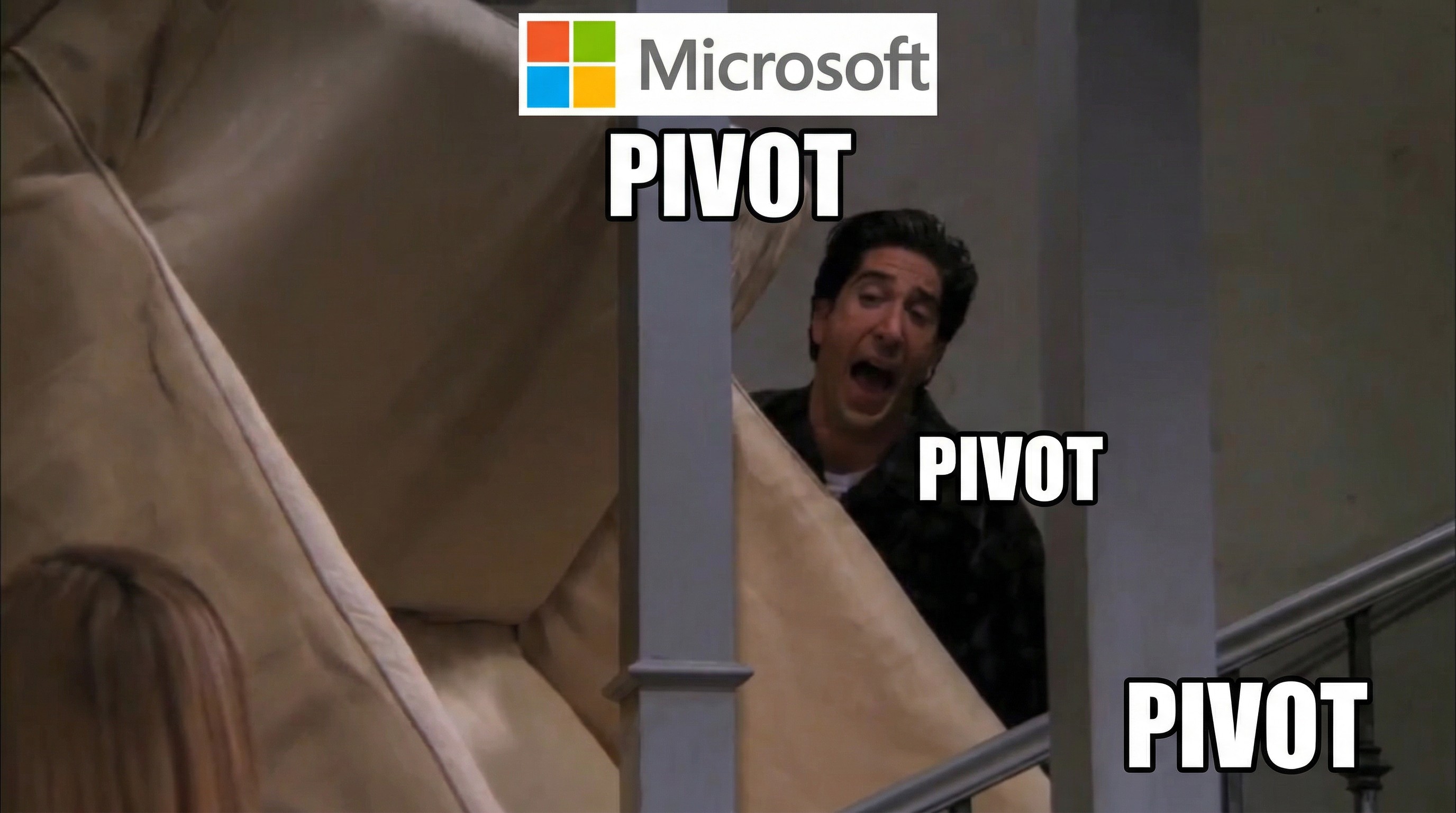Microsoft and Xbox have made billions on Halo, but a huge $1.8b chunk of that hasn't even come from the games
Halo is one of the biggest gaming franchises in the world, but nearly $2 billion of its consumer spend isn't from gaming.

What you need to know
- Halo is one of Microsoft's longest-running game franchises, and has played a huge role in the success of its Xbox gaming divisions since both Halo: Combat Evolved and the first Xbox console launched in 2001.
- Since its inception, Halo as grossed over $6 billion, with that number potentially as high as $10 billion according to details on a Microsoft LinkedIn profile.
- However, in a new article, Xbox head of consumer products John Friend has stated that nearly $2 billion of its consumer spend hasn't even come from the video games.
- Specifically, $1.8 billion has come from Halo merchandise and multimedia, including its many different toys, collectibles, apparel items, novels, comics, and more.
- Friend's comments also suggest that Microsoft may license newly acquired franchises like World of Warcraft and Diablo in similar ways, though he stressed that the firm will evaluate properties on a case-by-case basis to determine the best approaches.
When you think of Microsoft's massive sci-fi franchise Halo, I'm willing to bet that all the incredibly successful Xbox games from the past 20+ years come to mind. After all, the original Halo: Combat Evolved is responsible for putting Xbox on the map when it launched alongside Microsoft's first console in late 2001, and its many sequels (both mainline entries and spinoffs) have continued to be some of the biggest first-party titles offered to players across the Xbox 360, Xbox One, and Xbox Series X|S generations. Indeed, if Xbox has a flagship series, it's Halo — even if it hasn't really felt like one in the wake of the rocky performance of Halo Infinite.
With history and popularity like that, it's not terribly surprising that Halo has made over $6 billion (and possibly even $10 billion, according to the LinkedIn profile of Microsoft senior business manager Lillian Lehmann) and has become one of the largest gaming franchises ever since its inception. What did give me pause, though, is that a huge $1.8 billion chunk of its consumer spend hasn't even come from the video games at all. Instead, it's flowed in from purchases of Halo merchandise, including the series' apparel items, toys, collectibles, novels, graphic novels, comics, and films.
This news comes from an article published as part of the September issue of License Global magazine, in which Xbox's head of consumer products John Friend discusses Microsoft's "brand licensing strategies connecting iconic video game franchises with the world’s most diverse fan base." Friend points out that for smaller properties like Obsidian Entertainment's 2022 adventure game Pentiment, the firm has to be more selective with licensing opportunities. With something as big as Halo, though, Microsoft and Xbox can — and have — gone significantly further.
"I often use the phrase ‘no matching luggage,' meaning that it’s important to assess a franchise and a community based on who they are and what that franchise is and make sure that you’re designing a program that’s additive to fans and building fandom, both for that group and for that franchise," Friend explains. "We have an incredibly broad and exciting portfolio to work with, but we’ve got to be smart."

• Best Xbox / PC headsets in 2024
• Best upcoming Xbox / PC games
• Best Xbox controllers
• Best Xbox accessories
• Best small gaming PCs
• Best gaming laptops in 2024
In Halo's case, it's clear that — perhaps with the exception of the controversial, now-cancelled Paramount TV show — efforts to capitalize on its global popularity with extensive amounts of multimedia have been very fruitful. Its always-expanding library of dozens of novels have been widely enjoyed by fans interested in stories told from beyond the Master Chief's perspective, and there have been countless Halo action figures, LEGO-style Mega model kits, tabletop board game editions, clothing lines, and more developed and sold over the years as well. A substantial amount of additional merchandise like this is likely to release in 2026, as Microsoft is preparing to celebrate the 25th anniversary of both Xbox and Halo in that year.
"We have these massive, fantastic franchises ranging from World of Warcraft –celebrating its 20th anniversary this year — to Halo, Call of Duty, to StarCraft and much more,” Friend said. "We’re building plans for the 25th anniversary of Halo and Xbox — we have such a rich heritage and history, and these communities have been active for so long, you have to celebrate that."
🎃The best early Black Friday deals🦃
- 🕹️Xbox Game Pass Ultimate (3-months) | $31.59 at CDKeys (Save $17!)
- 💻Samsung Galaxy Book4 Edge (X Elite) | $899.99 at Best Buy (Save $450!)
- 🎮Razer Wolverine V2 Chroma (Xbox & PC) | $99.99 at Amazon (Save $50!)
- 🕹️Starfield Premium Upgrade (Xbox & PC) | $27.69 at CDKeys (Save $7!)
- 💻ASUS Vivobook S 15 (X Elite) | $955 at Amazon (Save $345!)
- 🕹️Final Fantasy XVI (PC, Steam) | $43.79 at CDKeys (Save $6!)
- 💻Lenovo ThinkPad X1 Carbon | $1,481.48 at Lenovo (Save $1,368!)
- 🎮 Seagate Xbox Series X|S Card (2TB) | $249.99 at Best Buy (Save $110!)
- 🕹️Hi-Fi RUSH (PC, Steam) | $8.49 at CDKeys (Save $22!)
- 💻HP Victus 15.6 (RTX 4050) | $599 at Walmart (Save $380!)
- 🫙Seagate HDD Starfield Edition (2TB) | $79.99 at Best Buy (Save $30!)
- 🖱️Razer Basilisk V3 Wired Mouse | $44.99 at Best Buy (Save $25!)
- 🕹️Days Gone (PC, Steam) | $10.19 at CDKeys (Save $39!)
- 🖥️Lenovo ThinkStation P3 (Core i5 vPro) | $879.00 at Lenovo (Save $880!)
Halo is now just one small part of Microsoft's growing and evolving Xbox plans, but the company's successes when licensing it to various partners does suggest it will adopt a similar approach with other big-name franchises like Doom, Fallout, Diablo, and World of Warcraft — all series it now owns as a result of recent high-level acquisitions. Notably, the article confirms that the upcoming Call of Duty: Black Ops 6 will get a Fashion UK apparel and accessories line this fall, a limited edition Zombies-inspired YooTooz figure line this fall and next spring, themed KontrolFreek Performance Thumbsticks and Thumbgrips for game controllers, and a wave of peripherals from Corsair as part of a multi-year partnership between Call of Duty and Corsair. Friend's comments also suggest there's a desire at Xbox to expand into AR and VR and create "immersive events and experiences," though I'm doubtful we'll see much (if anything) come from that since these technologies have continuously failed to reach mainstream popularity.
All the latest news, reviews, and guides for Windows and Xbox diehards.
What I know for sure, however, is that Microsoft and Xbox will continue to evaluate each of its properties on a case-by-case basis and license them when and where it's appropriate. Friend makes this clear: "I think it’s important to make sure we’re smart about our focus and understand our distinct and diverse portfolios. The strategy and approach will not always be the same for every franchise ... the same for every studio. That means we must be open to being thoughtful and thinking that what works for World of Warcraft may not work for StarCraft or Diablo. We have a lot of flexibility and just listen to fans to understand how to be additive to their experience.”
- DEAL: Xbox Game Pass Ultimate 3-month pre-paid cards are just $29.29 at CDKeys, giving you three months for the price of two even after the recent price increase to $19.99/month
This piece largely focused on the multimedia beyond games for Halo and other big Microsoft franchises, but if you've never played the titles that made them globally popular in the first place, Xbox Game Pass is a cost-effective way to do so. Access to the vast majority of the firm's first-party games and all of its console exclusives across Xbox and PC is included with a subscription to Xbox Game Pass Ultimate, with PC Game Pass and Xbox Game Pass Standard also options for PC and Xbox players, respectively.

Brendan Lowry is a Windows Central writer and Oakland University graduate with a burning passion for video games, of which he's been an avid fan since childhood. He's been writing for Team WC since the summer of 2017, and you'll find him doing news, editorials, reviews, and general coverage on everything gaming, Xbox, and Windows PC. His favorite game of all time is probably NieR: Automata, though Elden Ring, Fallout: New Vegas, and Team Fortress 2 are in the running, too. When he's not writing or gaming, there's a good chance he's either watching an interesting new movie or TV show or actually going outside for once. Follow him on X (Twitter).


